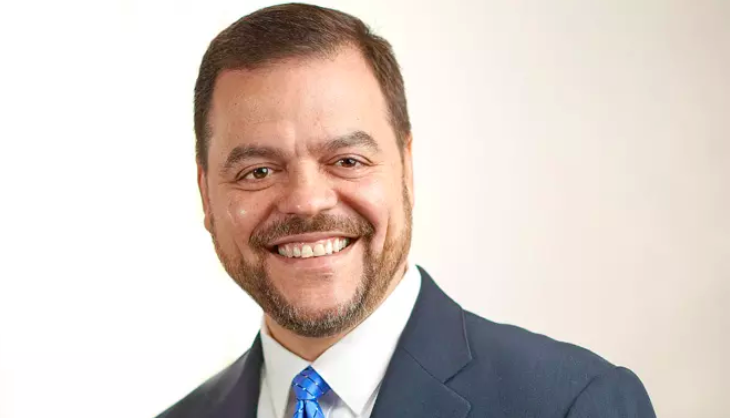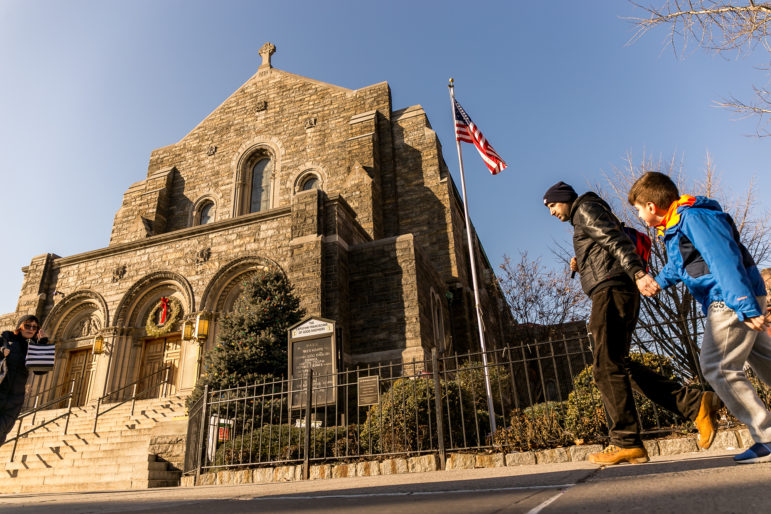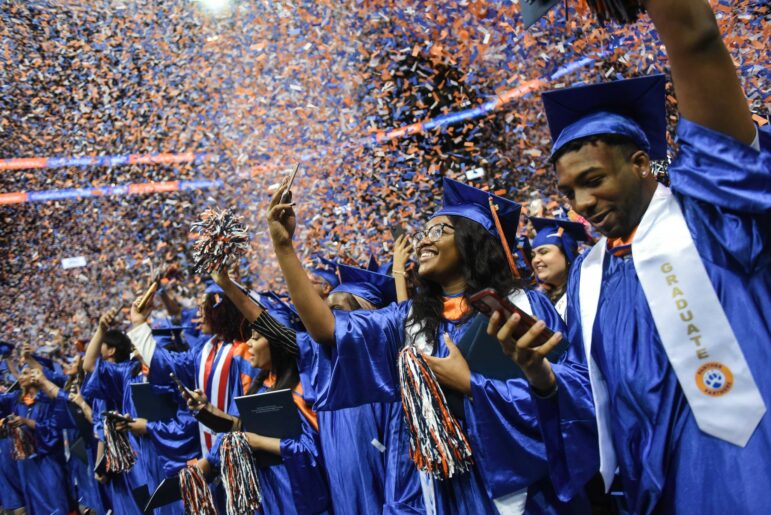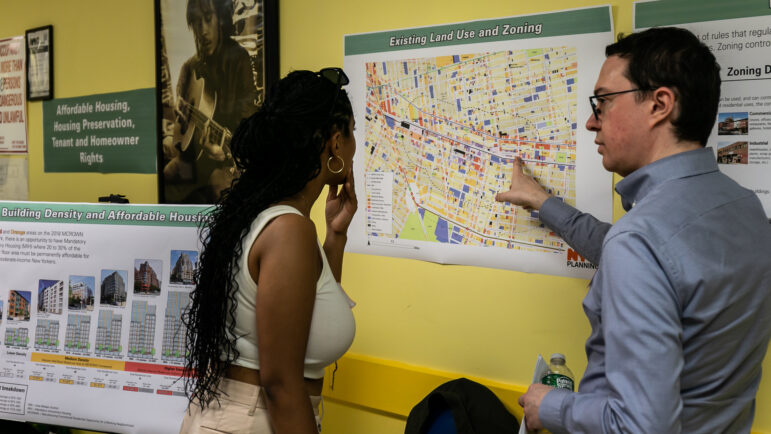
NYS Senate
Sen. Luis Sepulveda said he introduced legislation to regulate tele-dentistry after hearing about consumer concerns.In late 2017 Bronx senator Luis Sepulveda received a $200,000 loan from a Long Island dentist to fund his campaign for a Senate seat. Just two months after winning the special election, the senator introduced the first of two bills he has drafted that, had they passed, could have benefitted the dentist and his industry.
The loan, which was provided by Zac Efraim, a Long Island orthodontist, was first reported on by City Limits in 2018. The New York Post recently revealed that the loan is under scrutiny by the state Board of Elections because it wasn’t paid back five months after the race, violating a state law that requires loans to be paid before an election.
At a time when the Democratic Party was weighing whether to nominate Sepulveda as the candidate in an April 2018 special election to fill the seat Ruben Diaz, Sr. vacated when he joined the New York City Council, the $200,000 provided a huge boost for the then assemblyman.
“The Senator has received an illegal contribution by not paying back a $200,000 loan by Election Day, and now it appears he has introduced legislation that would benefit the very dentist who loaned him the cash,” said Alex Camarda, senior policy adviser for Reinvent Albany, a government accountability group. “This is exactly why we need lower contribution limits and stronger election law enforcement in New York State to prevent the perception of favors for large donations,” Camarda added.
Growing competition
Tele-dentist companies like Smile Direct Club have disrupted the orthodontic industry and have been growing in prominence because they are a cheaper alternative. Over the years, the American Association of Orthodontics, representing 18,000 dental professionals, has lodged complaints with dental boards and attorneys across the country alleging that companies like Smile Direct Club —which allows customers to bypass the doctor’s office and X-rays— are “illegal and create medical risks.” The American Dental Association has warned about the dangers such companies pose because of the lack of adequate supervision and other medical risks.
But Smile Direct Club—which is usually the subject of these complaints—has fought back, saying an assigned dentist will check in remotely every 90 days for the duration of the treatment.
The nearly identical bills—one introduced in 2018 and the other in 2019—target companies that provide mail-in aligners that allow consumers to skip the dentist’s office.
While the bills do not call for an outright ban, the measures would make it harder for these online tele-dentist companies to operate in the state. The legislation calls for the online companies to comply with standards of the ADA, which last year filed complaints with the Federal Trade Commission and the Food and Drug Administration against Smile Direct Club and has passed resolutions discouraging what it calls “do-it-yourself dentistry.” It also would prohibit such firms from using arbitration clauses that limits the right of consumers to sue and require them to provide labels warning of the potential dangers of using the products without x-rays.
The case for the bill
Asked why he proposed these bills, Sepulveda said in an email that, “After hearing the concerns from the dental industry on the harm being done to patients who use 3D-printed clear aligners as an alternative to traditional braces, I chose to introduce legislation requiring supervision.”
Carmada said even if the senator believes in the bills, the fact that he received this loan from someone with an interest in the industry is a concern because of the perception it creates. “The senator may believe in the policy, but the circumstances in which the bill is introduced makes it appear that the $200,000 campaign-loan-turned-illegal-contribution is a factor or the reason,” Carmada said in a follow up phone conversation with City Limits.
Betsy Gotbaum, executive director of Citizens Union, a government watchdog group in New York, agrees that the financial machinations undermine the case for what could be a sensible bill.
“The substance of this would be hard not to agree with,” she said in a phone conversation. “I mean the fact that some people who are not licensed are doing the practices which could be harmful to people is wrong.”
But Gotbaum maintains that practices like accepting and not quickly repaying major loans adds to the impression that politicians are influenced by big money. “On the face of it, it’s not good. It’s the kind of thing that makes people think politicians and legislatures are corrupt and I don’t blame people [for thinking that]” she said.
The author of the Assembly version of the bill, Sepuveda’s fellow Bronx Democrat Nathalie Fernandez, says she proposed it after a request from Sepulveda. Her office denies having prior knowledge about the loan. “After first reading the bill language, it seemed like a sensible piece of legislation that sought to ensure that tele-dentistry is performed safely,” an email from her office said.
A long-time friendship
According to The Post, the loan was arranged by Sepulveda’s campaign treasurer Oshrie Zak, who is Efraim’s brother. The state senator has known the siblings for years, the report said.
Scott Friedman, a dentist at the same Long Island clinic, has over the years donated to Sepulveda, including when he was running for an Assembly seat in 2010. The donations from the Zaks and Friedman have over time totaled about $25,250. The senator has also received donations from other individuals and groups with interest in the industry including the Empire Dental PAC, a powerful lobbying group which has given Sepulveda at least $10,000 over the years.
The Senate and Assembly versions of the bill are still in committee, and it’s unclear if they will move forward.
In another emailed statement, the senator said that rather than benefit Zac and his industry, the bills will actually accomplish the opposite. But with the loans and campaign contributions, in addition to efforts by industry stakeholders to stunt the growth of tele-dentist companies, it’s highly unlikely that these bills will affect—rather than favor— orthodontists.
“Many orthodontic professionals have benefited by treating patients who had been harmed by the use of unsupervised clear aligners. However, the dental industry made the right move when it pushed for this legislation – even while it hurts their pockets,” Sepulveda continued in the email.
In a 2017 survey conducted among its members, the AAO said it found that nearly 13 percent of its member orthodontists report treating patients who have attempted do-it-yourself teeth-straightening procedures. It’s unclear whether those dissatisfied customers would generate enough business with traditional orthodontists and dentists to make up for the volume they lose to tele-dentistry.
A lawyer by trade, Sepulveda became a senator in 2018 after spending nearly six years in the Assembly. He was instrumental in one of the most significant laws passed early last year: the Green Light law, which allows New Yorkers to obtain a driver’s license regardless of their immigration status. Thanks to his efforts the law passed despite strong opposition from some quarters.








